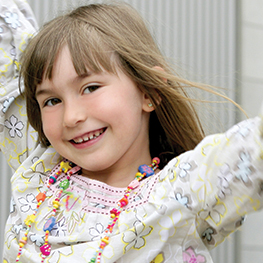
Expectations of both parents and children run high to have the perfect party. Despite your best efforts, if you have a young or sensitive child, it is possible that your child or a guest may end up in tears at the exciting, stimulating event in which you have invested considerable time and money.
Prevent your party from becoming a tear fest. Follow these nine easy steps to keep the enjoyment level elevated for all attendees - you included:
1. When setting your guest list, follow the classic rule of your child’s age plus one for the number of invitations. Not many three year olds can handle the thrill of a huge party. How does your child do with other large family events, such as Thanksgiving? Use lessons you have learned from other celebrations to help you develop this party.
2. Schedule the festivities when your child is at their natural peak. If they still nap, do not schedule the party at the time of day when they are usually sleepy. If your child is an early bird, plan a morning event. If your older child is lobbying for a sleepover party but you know from experience that they turn into a nightmare without enough sleep, steer them in another direction.
3. Consider options for the location. For some children, a party held at home will reduce the potential for emotional overload. However, this is not always the case. Shandy Tilley’s daughter had meltdowns at a few home parties before her mom recognized that she was stirred up even by the preparations. “Having them off-site allowed us to have a real start and finish time, and two hours was plenty. It made the transition easier for Tatiana if everyone came to the party at the same time and left at the same time.”
4. Think about the timing of gift opening. Who says the gifts must be opened at the end of the party? One year, we let my son open the gifts as guests arrived. He enjoyed the planned activities instead of coming over every two minutes to ask when we were opening all those glorious presents. Anne Marie Healey used the same tactic when her two children were young. “It also allowed the giver to have some one-on-one attention on their gift.”
5. Gift giving can be a source of anxiety for young guests as well. Children are usually excited about showing off the present they brought and wrangle to have theirs opened first. Healey suggests giving each child a square with a number on it. The child sits patiently until their number is drawn randomly, and then it’s their turn to give their present.
6. Manage your child’s expectations about presents to prevent an embarrassing or hurtful response to an unwanted gift. Role-play before the party. Rehearse several times by putting silly things, such as a can of peas, in a box. Have the child open it and teach them to respond with the requisite “thank you.”
7. Think about the activities you are offering. Seemingly age-appropriate activities can backfire if they are not suited to your child. Tilley suggests, “Don’t play competitive games. Who knew musical chairs could be so trauma provoking?”
8. Be organized with the activities so that the guests are always busy. “I always have extra activities planned in case things go faster than expected,” says Tanya Bonham, owner of Parties to Go.
9. If you feel pressured to keep up with the parties being coordinated by your friends, take Tilley’s advice, “Don’t worry about competing with others. Invite them to help.” As your guest list grows along with your child and parents no longer stay at the party, recruit extra hands.
Most importantly, tailor the party to your child’s personality and temperament. If tears occur, take heart and remember that it will be funny several years down the road.
Sue is a freelance writer, and mom of two. She is always happy to survive a birthday party without tears.
Calgary’s Child Magazine © 2025 Calgary’s Child